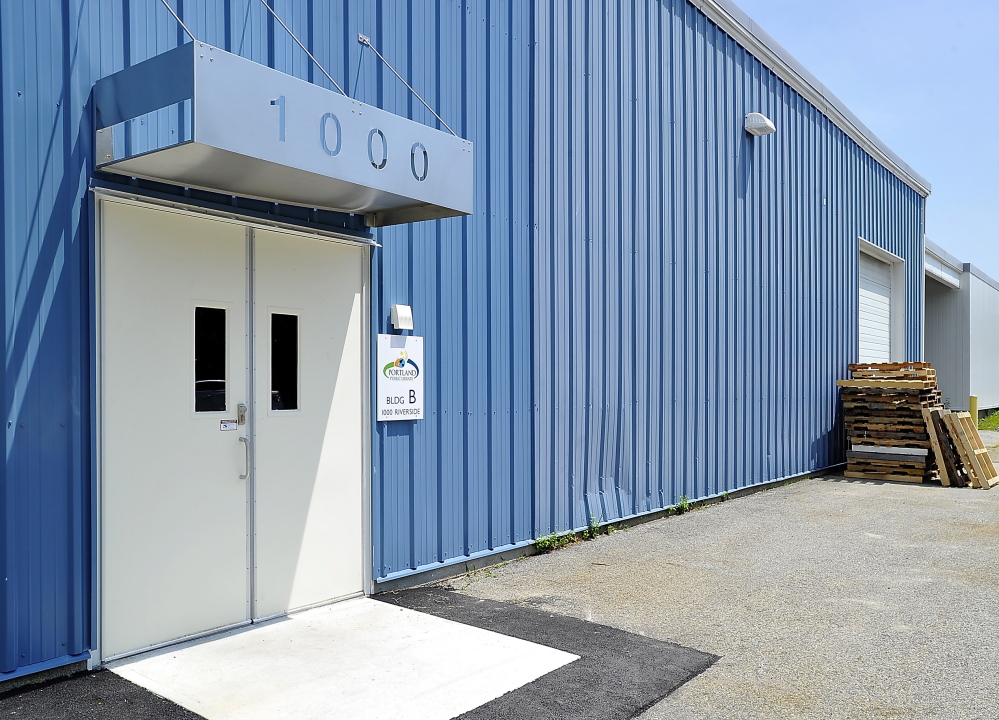At first glance, the large, single-story building on Riverside Street looks like many other industrial buildings in the neighborhood.
But what’s inside the 35,000-square-foot structure could have a big impact on downtown Portland.
The building at 1000 Riverside St. is jointly owned by the Portland Public Library and Maine Historical Society to meet both organizations’ long-term storage needs.
The arrangement represents an unusual degree of collaboration among cultural organizations in Maine and signals opportunities for both groups, which are devising better ways to use their valuable Congress Street buildings to serve visitors.
“We just gained 18,000 square feet on Congress Street,” Maine Historical executive director Steve Bromage said. “That’s extremely valuable. This solves a lot of back-office issues and enables us to do a better job with our exhibitions.”
For the historical society, the storage problem has become acute with the recent acquisition of collections from Central Maine Power and the Bangor Theological Seminary. Some of the material is what you might expect, papers stored in boxes.
Other elements include old transformers and pieces of equipment the power company used to transmit electricity around Maine.
For the library, the Riverside storage facility allows daily access to circulating collections among the main downtown library, its branches and libraries across Maine. It also provides a base for the traveling Bookmobile.
It gives both groups an opportunity to transform their respective Congress Street campuses and continue the cultural revitalization of downtown Portland.
The new storage facility, called the Shared Collection Management Center, also allows the organizations to proceed with discussions about long-term building projects.
The Maine Historical Society would like to renovate or replace its downtown museum, and the library is eying the second phase of its renovation with a reading room and additions to upper floors. The library completed the first phase in 2011.
Portland is a city in transition, and the library and historical society are looking to change with it. “This gives us the chance to respond to the needs and desires of people who live and work in Portland and the larger cultural community in Maine,” Bromage said.
Steve Podgajny, the library’s executive director, said the cultural organizations are linked by geography and shared missions. Their front doors are only blocks apart, and both collect cultural materials integral to the history of Maine and offer programs and services designed to improve the lives of Mainers.
The organizations also wrestle with storage needs, a problem they found they could solve together. Podgajny called it a “new model for nonprofit collaboration” in Maine.
They formed a condominium association, purchased the Riverside building from J.S. McCarthy Printers for $1.5 million and invested another $1.8 million in renovation and moving costs.
Together, they launched a fundraising campaign to pay for the building, which has a shared loading dock and separate climate-controlled storage spaces for each organization. They also share a truck to transport materials. Costs of the purchase and renovation were split evenly.
Podgajny said it might be challenging for other organizations to work so closely, but the library and historical society formed a trusting relationship. “We have a lot of mutual respect for each other,” he said. “There has been a complete commitment to getting this right for the interest of both organizations.”
The roots of the project go back three years, when the library accepted an offer from a local business for free storage of about 200,000 items during the first phase of its downtown renovation.
Being able to store and access materials demonstrated the benefits of back-end storage, Podgajny said, adding, “We quickly realized we had to solve our storage needs permanently.”
Leasing storage space would cost $40,000 to $50,000 a year. The library board approved the idea of buying a permanent storage facility, and instructed Podgajny and his staff to explore all options. The discussions with Maine Historical began soon after.
The groups purchased the building in November, renovated it over the winter and began using it in June.
Copy the Story Link
Send questions/comments to the editors.




Success. Please wait for the page to reload. If the page does not reload within 5 seconds, please refresh the page.
Enter your email and password to access comments.
Hi, to comment on stories you must . This profile is in addition to your subscription and website login.
Already have a commenting profile? .
Invalid username/password.
Please check your email to confirm and complete your registration.
Only subscribers are eligible to post comments. Please subscribe or login first for digital access. Here’s why.
Use the form below to reset your password. When you've submitted your account email, we will send an email with a reset code.